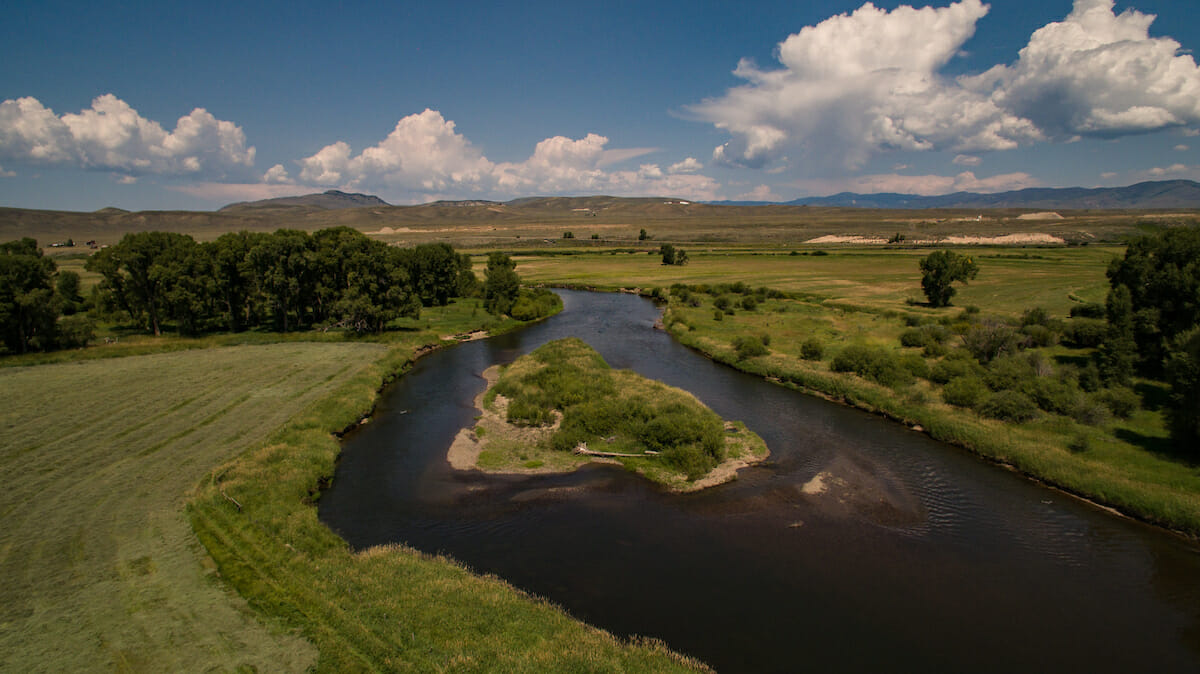
In good news for healthy fish, streams and communities, administration vetoes congressional effort to weaken landmark water law
Contacts:
- Chris Wood, President and CEO, Trout Unlimited, chris.wood@tu.org
- David Kinney, Vice President for Communications, Trout Unlimited, david.kinney@tu.org
ARLINGTON, Va.—President Biden today vetoed a Congressional resolution to block a revised, clearer definition of the “Waters of the United States” that would restore federal Clean Water Act protections for millions of miles of small streams and wetlands that are critical to healthy watersheds and wild and native fish.
“Everyone in America understands the value of clean drinking water. Whether you care because you fish, enjoy a glass to start the day, or count on it to clean your child in the evening, the Clean Water Act is vital to the health of our rivers and streams,” said Chris Wood, president and CEO of Trout Unlimited. “The ‘Waters of the U.S.’ rule restored basic protections for the small streams and headwaters where healthy water starts. We thank the administration for opposing efforts to weaken a basic right of Americans, and for standing up for clean water for communities, businesses, farmers and fisheries. We urge Congress to do the same.”
The new rule in question replaces the Trump-era Navigable Waters Protection Rule, vacated by a federal court in 2021, and largely reinstates Clean Water Act protections in place since 1986, with changes to incorporate recent court decisions. The rule, finalized in December, maintains clear permit exemptions for all routine farming and ranching activities to bring certainty to producers, who are important TU partners in our conservation efforts on working lands. It also continues the decades-long requirement that construction projects, such as new roadways, pipelines, and housing developments, protect or restore affected wetlands or streams.
In March, Congress exercised its Congressional Review Act authority to block recently enacted regulations; Biden had promised to veto the attempt.
Trout Unlimited has worked for years to defend the Clean Water Act, a lynchpin of efforts to improve America’s waters and fisheries since its passage in 1972. TU has signed onto four amicus briefs and volunteers have sent tens of thousands of messages to lawmakers and agencies in support of protections for small streams and headwaters. TU scientists have helped document the impacts of the “Waters of the U.S.” definition on streams.
Earlier this year, more than two dozen states joined construction and business groups in challenging the new rule in court. A federal judge has blocked implementation of the rule in two states.
Separately, the EPA is awaiting a ruling this year from the U.S. Supreme Court in Sackett v. EPA, in which a couple disputes the agency’s conclusion that they needed a Clean Water Act permit to build a home on a lot that contains wetlands near Priest Lake in Idaho. Attorneys for the Sacketts proposed an even weaker “Waters of the U.S.” definition than the one developed under the Trump administration and rescinded last year.
“It’s more important than ever for all of us who care about healthy streams and thriving fisheries to defend the Clean Water Act,” Wood said. “TU will continue to fight for protections for small streams and for common sense: If we want healthy water downstream in our communities, we need to care for the headwaters where clean water starts.”
###
Trout Unlimited is the nation’s oldest and largest coldwater fisheries conservation organization dedicated to caring for and recovering America’s rivers and streams so our children can experience the joy of wild and native trout and salmon. Across the country, TU brings to bear local, regional and national grassroots organizing, durable partnerships, science-backed policy muscle, and legal firepower on behalf of trout and salmon fisheries, healthy waters and vibrant communities.

